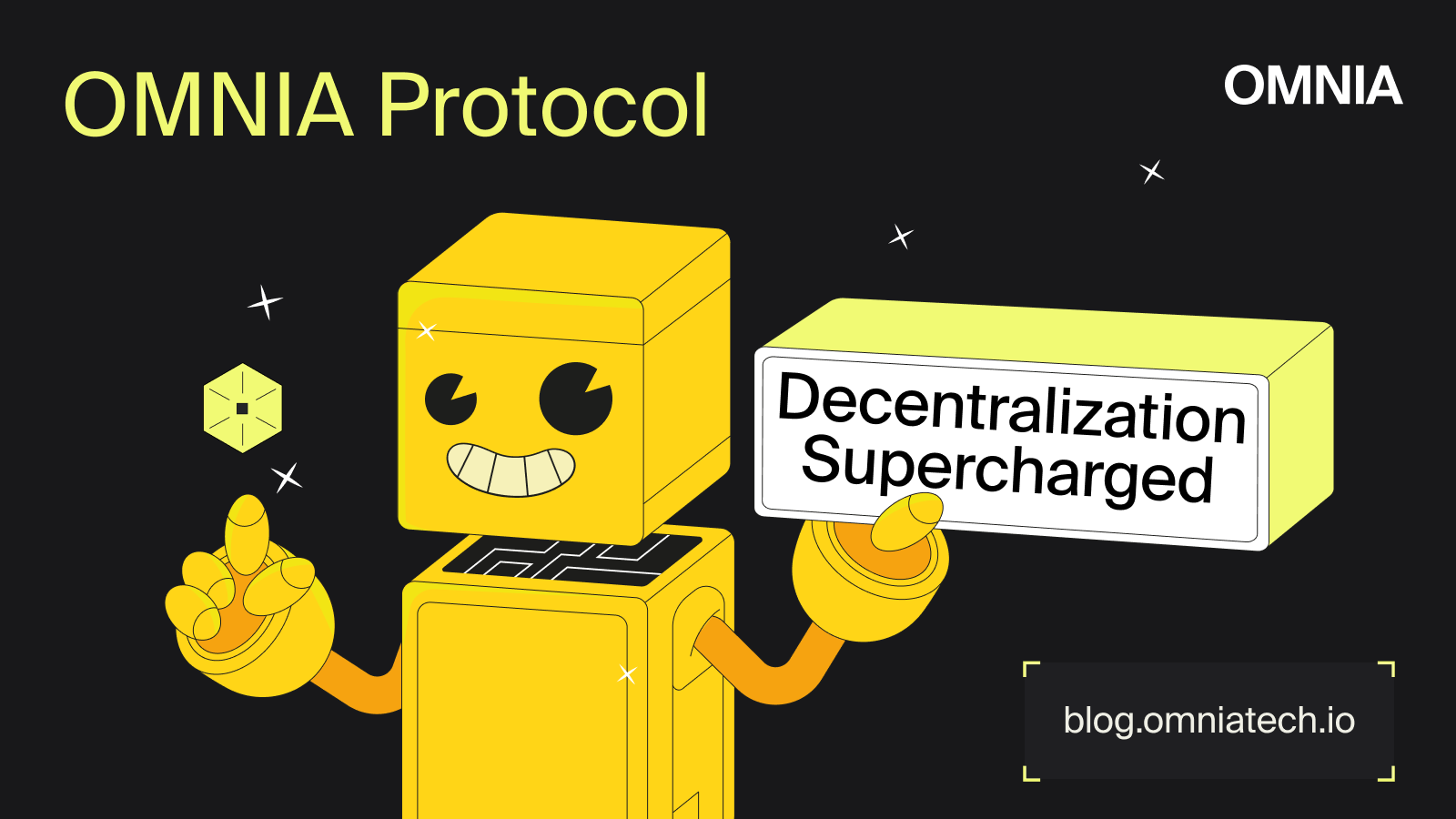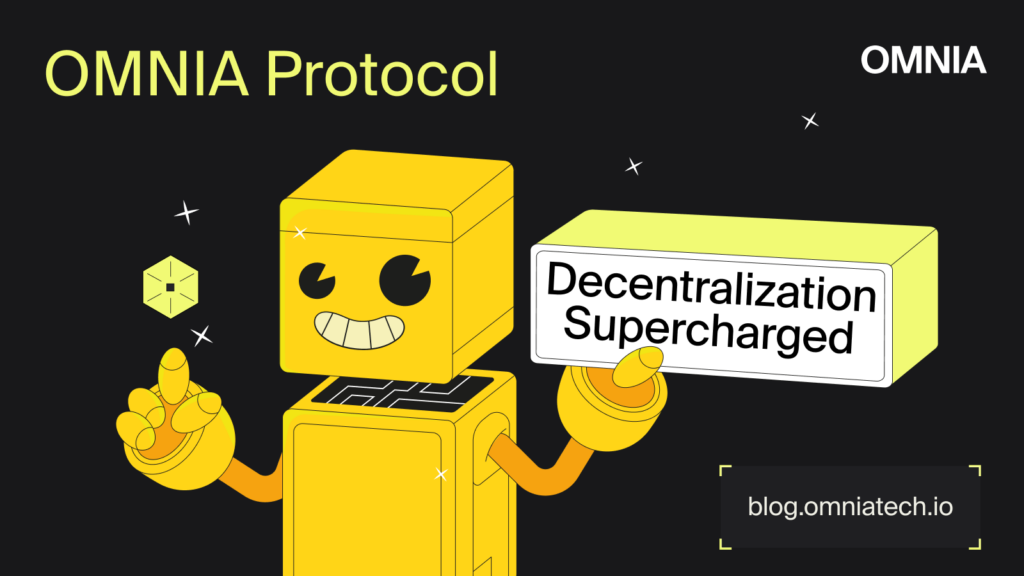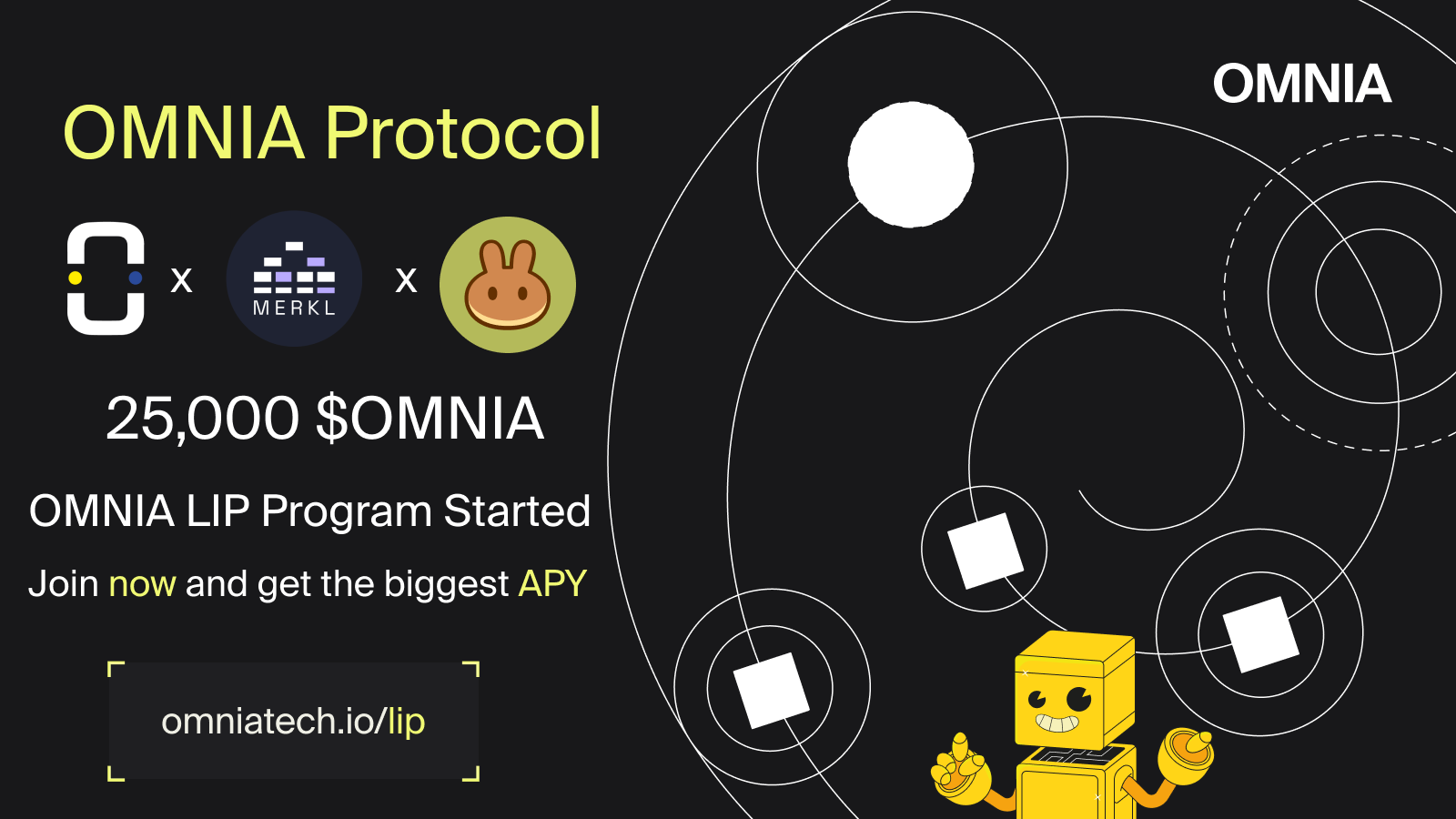
$OMNIA – Decentralization Supercharged

Crypto enthusiasts are always on the lookout for the next best thing – especially during the bull market.
Yet, despite all the buzz surrounding their launches, many tokens simply don’t offer much in terms of real-world value, application, or innovation. Fortunately, there are always outliers, and we’re proud to see $OMNIA picking up steam in such a saturated market.
With a unique value proposition and utility poised to take Web3 by storm, $OMNIA is a force to be reckoned with.
Stay with us as we explain what’s behind this stratospheric growth.
What are blockchain nodes?
To paint a full picture of $OMNIA’s real-world application, it’s necessary to first cover some basics.
Blockchain nodes are the bread and butter of OMNIA Protocol. You can look at these nodes as an individual network stakeholder (or an authorized piece of hardware) that keeps count of the distributed ledger and pulls double duty as a communication hub for network-related processes.
A node confirms the legality of all subsequent network transactions or blocks. It allocates a unique identifier to every node in the chain, making it easy to tell all these interconnected nodes apart. In turn, nodes serve as a record of the entire transactional history of the network.
Combine everything, and you get a secure and decentralized network with no single point of failure. Put differently, if one node fails, not one application built on the blockchain will end up being disrupted.
Threat of untrusted entities operating nodes
Blockchain operates on a system of consensus between untrusted entities, with no centralized third party overseeing any of the transactions. The transaction costs are minimal and everything is transparent and efficient – that’s what decentralization is all about, after all.
Not everything is rosy. You still have to account for human nature and the ability of some users to exploit the system for nefarious purposes.
On the blockchain, all nodes contribute to the healthy functioning of the network. Though no single node is vital, if one node is compromised or knocked offline, the entire network is more vulnerable to attacks.
You see where we’re going with this: hackers could potentially make DoS attacks against a series of nodes and take advantage of the blockchain’s consensus algorithms.
Malicious transactions are another reality of operating in a decentralized system. Nodes process untrusted data, making them weak to injection attacks. Thus, a single malicious transaction exploiting inherent vulnerabilities in the software could crash the node, or worse, grant the attacker full access and control over it.
This is why we can’t have nice things – except $OMNIA.
How $OMNIA tokens help secure the network
$OMNIA serves as a cornerstone of the entire OMNIA Protocol – empowering the community and ensuring maximum security for each user.
The best way to describe it is as a driver of trust within the platform. OMNIA runs on community nodes, meaning each node must stake $OMNIA to participate in the network. Since nodes must comply with strict synchronization standards and adhere to predefined uptime, they are incentivized to perform at an optimal level, which benefits the entire network.
Plus, non-compliance results in penalties so users are further incentivized to “act good”.
Since the entry point requires staking $OMNIA, users will fully commit to the integrity of the platform, boosting security and service quality. Even more important, it discourages untrusted entities, creating an environment where only credible users can participate in a truly decentralized ecosystem.
Watch this video to understand the role of $OMNIA in the ecosystem.
Rewards for stakers
With the primary “ruleset” established, let’s dive deeper into the staking mechanism responsible for the additional network security.
In OMNIA, part of the revenue is reserved for the staking pool. This ensures a guaranteed yield for node stakers as their rewards are proportionate to the value added for monetizing nodes.
Staking is simple to grasp:
A portion of the tokens is secured or locked over a certain period and used to boost the network’s functionality and security. For their effort, stakers are rewarded from the staking APY pool with their yield increasing the longer they stake and depending on the performance of the staked node.
How staking contributes to a decentralized infrastructure
DeFi is all about transparency and long-term sustainability, fueled by users themselves. OMNIA Protocol is there only to make certain everyone is acting in the best interest of their network.
With $OMNIA at its core, we created a completely decentralized infrastructure with an extra layer of trust between users, applications, and blockchain.
Rewards are recirculated into the community, making sure everyone benefits from participating and adhering to the few “rules” – a system where long-term sustainability is assured.
Additional benefits of participating in the ecosystem
Along with earning rewards through staking, users get more benefits.
Holders will receive a hefty discount on their fees, making it drastically more cost-effective to use OMNIA services, while also incentivizing continued participation. The fee reduction is based on the number of tokens – those holding between 15k and 50k tokens can receive a discount of up to 50%.
It’s economy 101: users are encouraged to get and hold higher amounts of $OMNIA, contributing to the overall growth of the protocol and token value.
$OMNIA also doubles as a voucher, allowing holders to customize their subscriptions. In turn, this boosts the token’s demand and utility further.
Long-term vision
OMNIA is building a system for everyone to succeed. Our main mission is bridging the gap between MEV extracted by the searchers and regular users who often miss out on their piece of the cake. Each community member has free access to reliable and secure services, simply by holding on to the token.
With $OMNIA implemented so tightly into the protocol’s functionality, the long-term vision is a guarantee.
Impressive what a simple token can achieve, right?
About OMNIA Protocol
OMNIA is a leading RPC provider specializing in decentralized physical infrastructures (dePIN), offering unique incentives and rich features such as custom RPC and security checks. Our user base is currently exceeding 3 million monthly active users and we are processing over $3.1 billion monthly in volumes.


